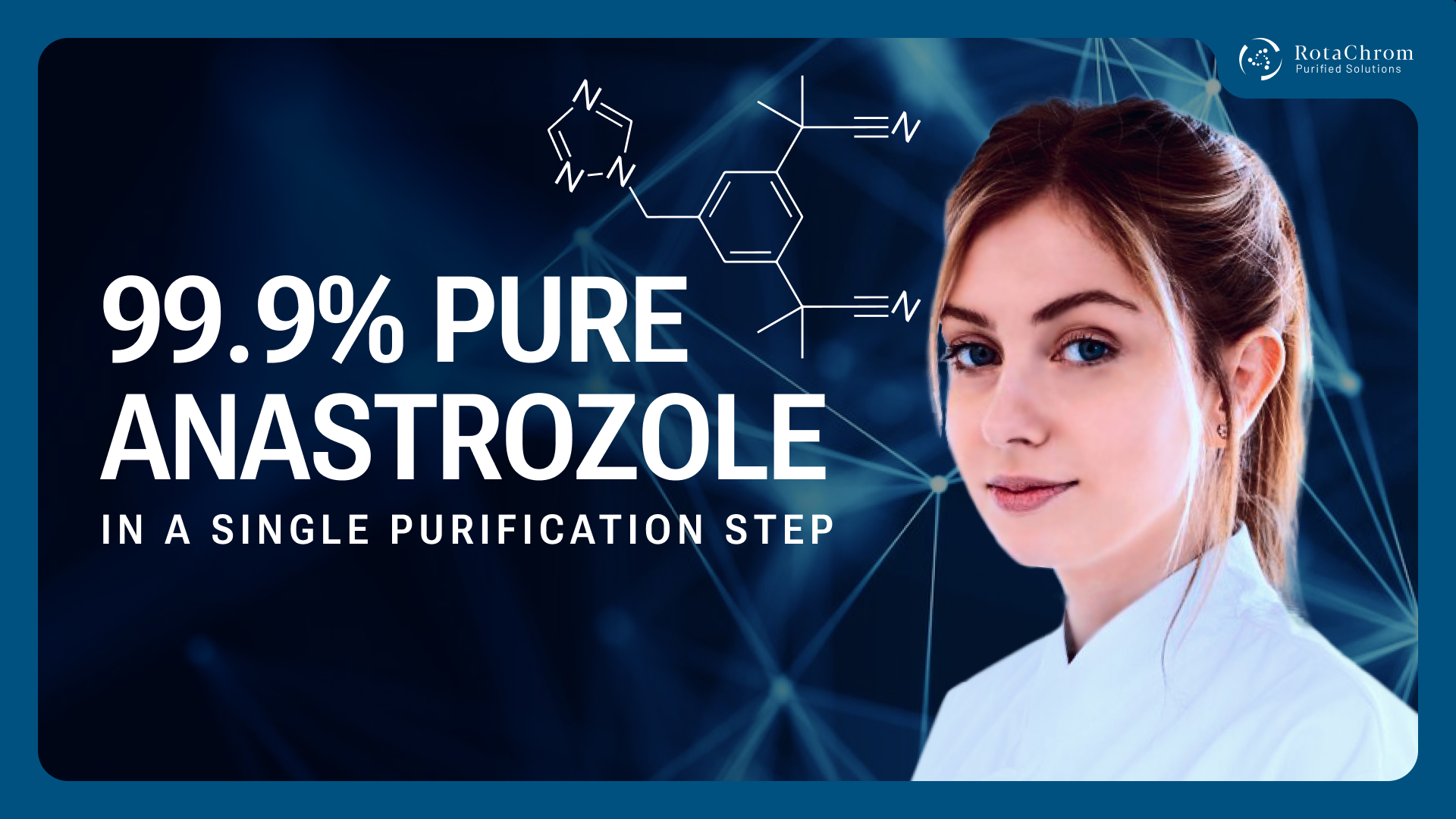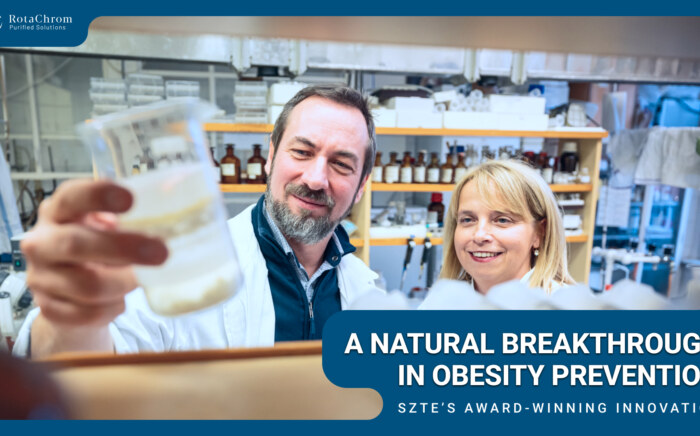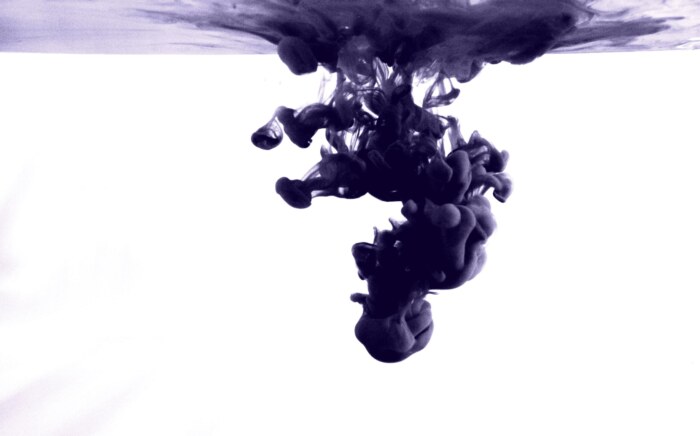Increasing separation efficiency by pH adjustment in Centrifugal Partition Chromatography
NewsIn the realm of pharmaceuticals, precision and purity are paramount. Anastrozole, a potent aromatase inhibitor, holds immense significance in the treatment of hormone receptor-positive breast cancer. However, achieving the requisite purity levels mandated by stringent regulatory guidelines has long posed a challenge for manufacturers. Traditionally, the purification of Anastrozole involved cumbersome processes, often necessitating multiple steps and sophisticated equipment such as column chromatography.
RotaChrom’s recent study has heralded a milestone advancement in Anastrozole production, promising to streamline the purification process while elevating purity levels to unprecedented heights. This landmark achievement stems from the innovative application of advanced technologies, particularly in the realm of chromatography and crystallization.
The study aimed to address the limitations of conventional purification methods by exploring alternative techniques that could circumvent the need for column chromatography, notorious for its time-consuming nature and associated costs. Enter RotaChrom’s revolutionary method, offering a novel approach to Anastrozole purification.
RotaChrom’s method represents a paradigm shift in pharmaceutical purification, consolidating multiple steps into a single, efficient process. Leveraging the principles of chromatography, this innovative technique achieves purity levels exceeding 99%, surpassing the stringent thresholds mandated by regulatory authorities. By eliminating the need for column chromatography, manufacturers stand to benefit from significant cost reductions and accelerated production timelines.
Central to this breakthrough is the utilization of countercurrent chromatography (CCC), a technique renowned for its ability to separate complex mixtures with unparalleled precision. By harnessing the power of CCC, RotaChrom’s method enables the isolation of Anastrozole with exceptional purity, paving the way for enhanced efficiency and cost-effectiveness in pharmaceutical manufacturing.
Furthermore, the study’s findings demonstrate the efficacy of crystallization as a complementary purification step, further augmenting the purity levels of Anastrozole. Following CPC purification, a single crystallization step can yield purity levels surpassing 99.9%, underscoring the efficacy of this integrated approach in achieving pharmaceutical-grade quality.
Beyond its implications for Anastrozole production, this breakthrough holds broader significance for the pharmaceutical industry as a whole. By embracing innovative purification technologies, manufacturers can optimize production processes, enhance product quality, and ultimately improve patient outcomes.
In conclusion, the study represents a watershed moment in pharmaceutical purification, marking a significant step forward in the quest for excellence in drug manufacturing. Through the convergence of cutting-edge technologies and relentless scientific innovation, RotaChrom’s method offers a glimpse into the future of pharmaceutical production, where purity knows no bounds, and possibilities abound. As the industry continues to evolve, such advancements serve as a testament to the unwavering commitment to advancing human health and well-being.



